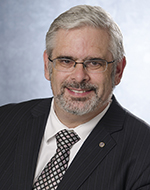Page Content
 Question: Why would the Alberta Teachers’ Association invite Tzeporah Berman, a notorious opponent of oilsands development and pipeline construction, to speak at a conference—don’t you realize that the energy industry pays teachers’ salaries?
Question: Why would the Alberta Teachers’ Association invite Tzeporah Berman, a notorious opponent of oilsands development and pipeline construction, to speak at a conference—don’t you realize that the energy industry pays teachers’ salaries?
Answer: In the last couple of weeks, we have been asked this question (and more colourful variants thereof) dozens of times by members, the public and even media. By way of background, the Social Studies; First Nations, Métis and Inuit; and Global Environmental and Outdoor Education councils invited Tzeporah Berman to present at their upcoming joint conference at the River Cree Resort located on the Enoch First Nation. The conference is organized and paid for by teachers—neither school boards nor the provincial government are involved in funding or planning it. The audience for the conference will be composed of classroom teachers who choose to register for the event; students will not be in attendance.
The teachers who have volunteered their time to serve with the three specialist councils understand that teachers are challenged to address the Indigenous, environmental and economic issues that dominate public affairs in this province. The classroom teacher’s responsibility is to assist students, in a developmentally appropriate manner within the scope of the curriculum, to become active and thoughtful citizens of our democracy by exploring various perspectives on these and other issues in a constructive and respectful manner.
| This is a process that fosters the critical thinking that is a hallmark of high-quality teaching and learning and that will make a positive, lasting contribution to the economic, social and political future of Alberta. |
The conference seeks to provide teachers with additional insights and perspectives by encouraging respectful dialogue. Even the selection of the venue for the event is relevant in this regard: Enoch is a First Nation community that has supported its development in large part from the development of its oil and gas reserves.
The conference planning has been underway for more than a year and continues. Tzeporah Berman was approached very early in the planning process and consented to bring her perspective with respect to climate change and First Nations. Berman’s positions on these issues are part of the larger public discourse. The councils have confirmed that other speakers will be talking about economic development challenges facing Alberta among other issues of concern. And beyond this, the conference will cover a wide range of topics relevant to social, environmental, global and Indigenous education from various perspectives.
There are some who are calling for Berman’s presentation to be cancelled because her views are contrary to the economic interests of Alberta. It is ridiculous to assume that cancelling this speaker would somehow make the issues she raises go away. Instead, teachers will provide a respectful but critical audience, and individual attendees will have an opportunity to be challenged by Berman and to challenge her views in return. This is a process that fosters critical thinking that is a hallmark of high-quality teaching and learning and that will make a positive, lasting contribution to the economic, social and political future of Alberta.
It is frankly strange that some of the voices calling for the cancellation of Berman’s presentation say that they are opposed to her “indoctrinating” her audience and, by extension, students. Apart from the fact that the teachers in attendance are entirely capable of thinking for themselves, it is odd that the first response of some to the perceived threat of indoctrination is to advocate that certain legitimate, if controversial, opinions should not be heard at all.
Questions for consideration in this column are welcome. Please address them to Dennis Theobald at Barnett House (dennis.theobald@ata.ab.ca).
